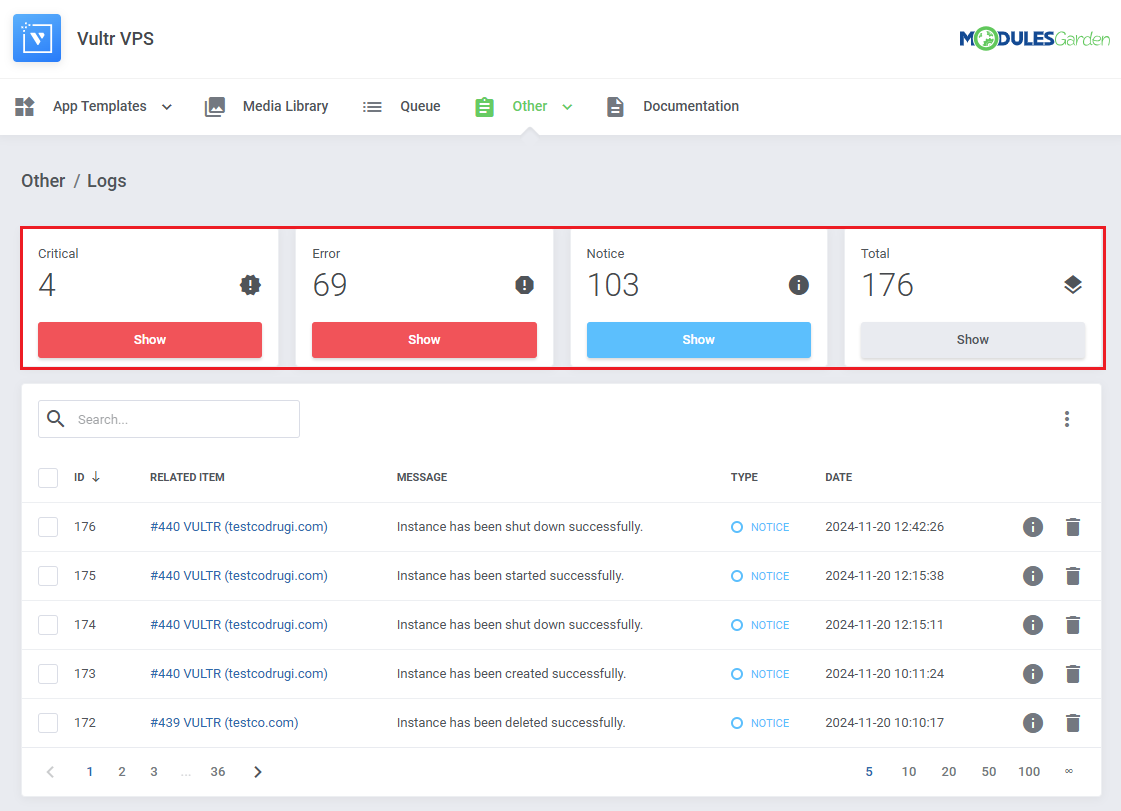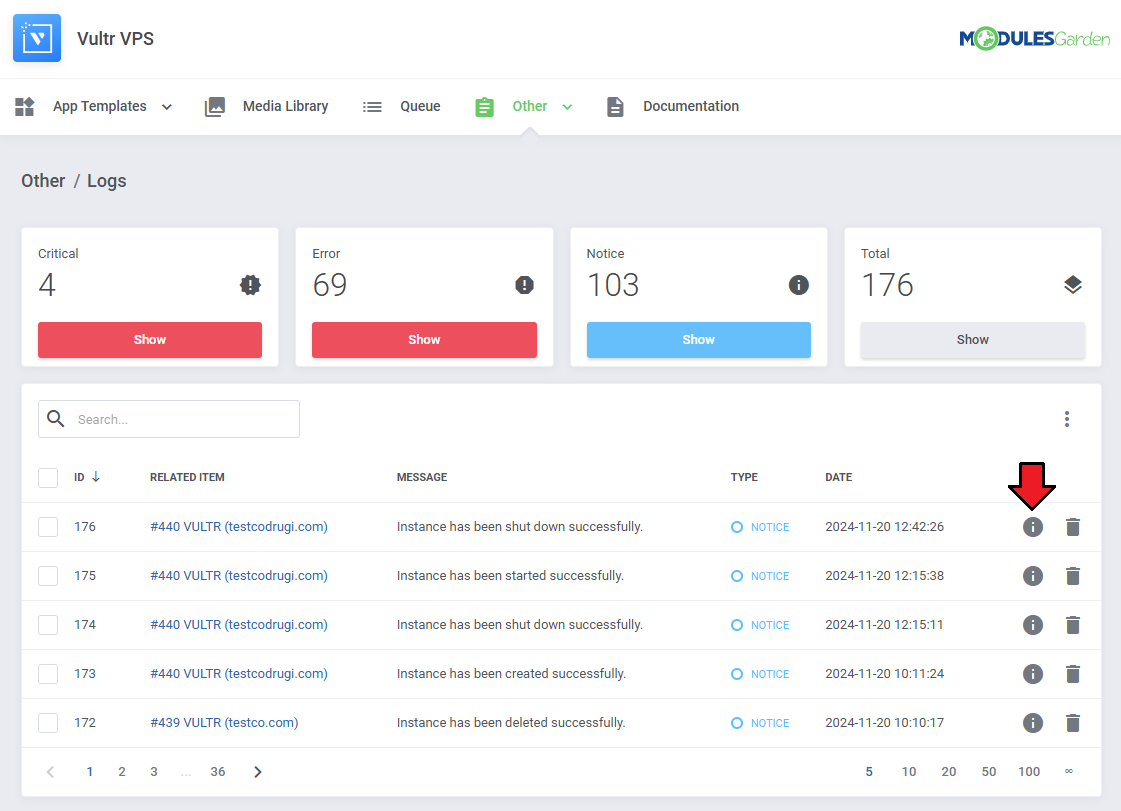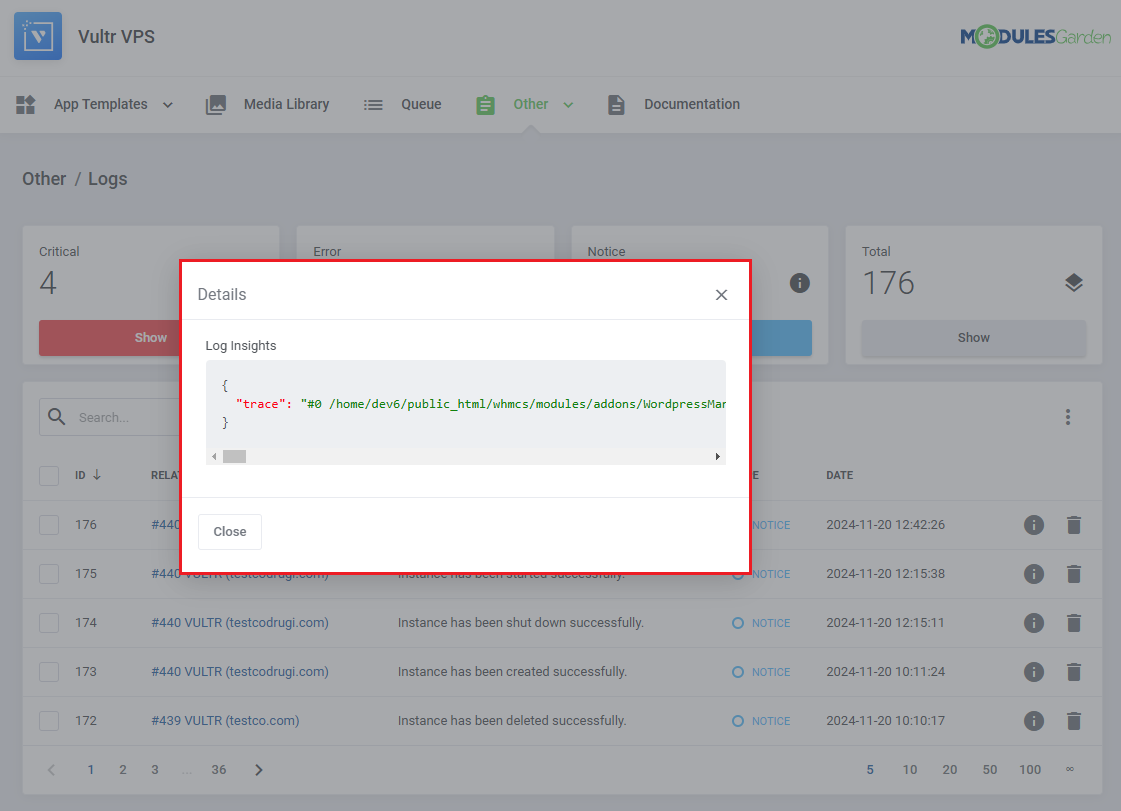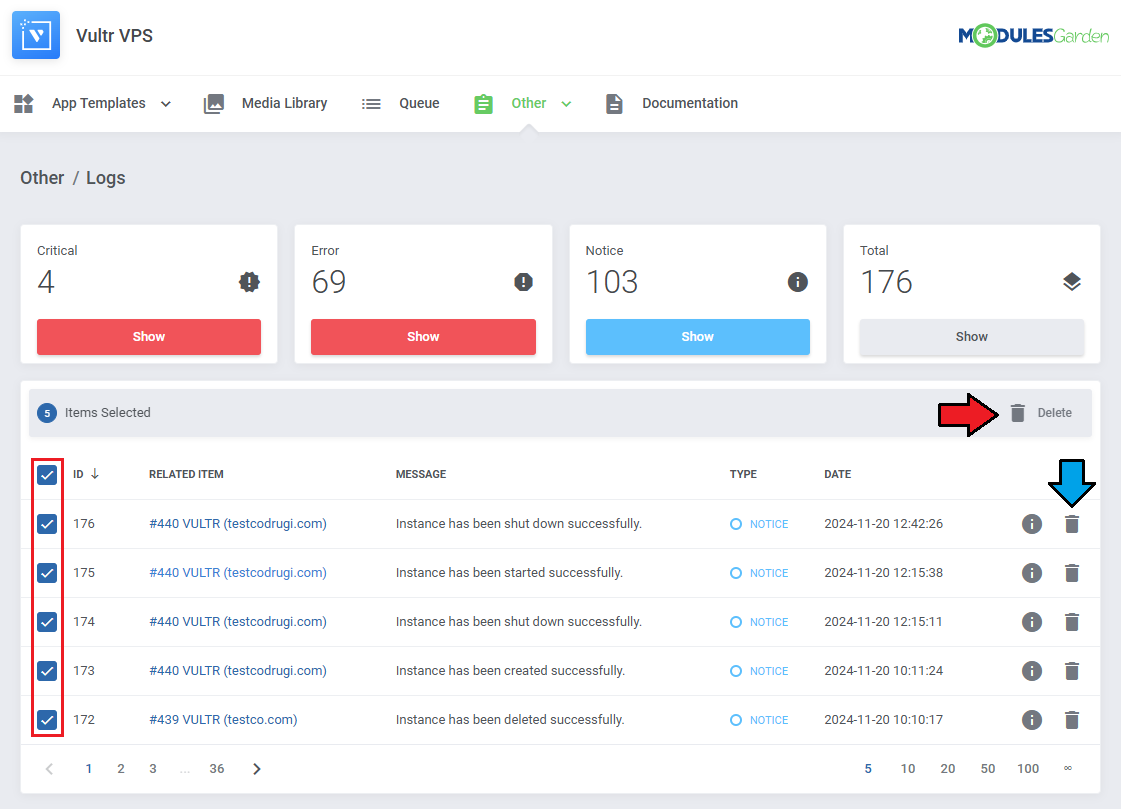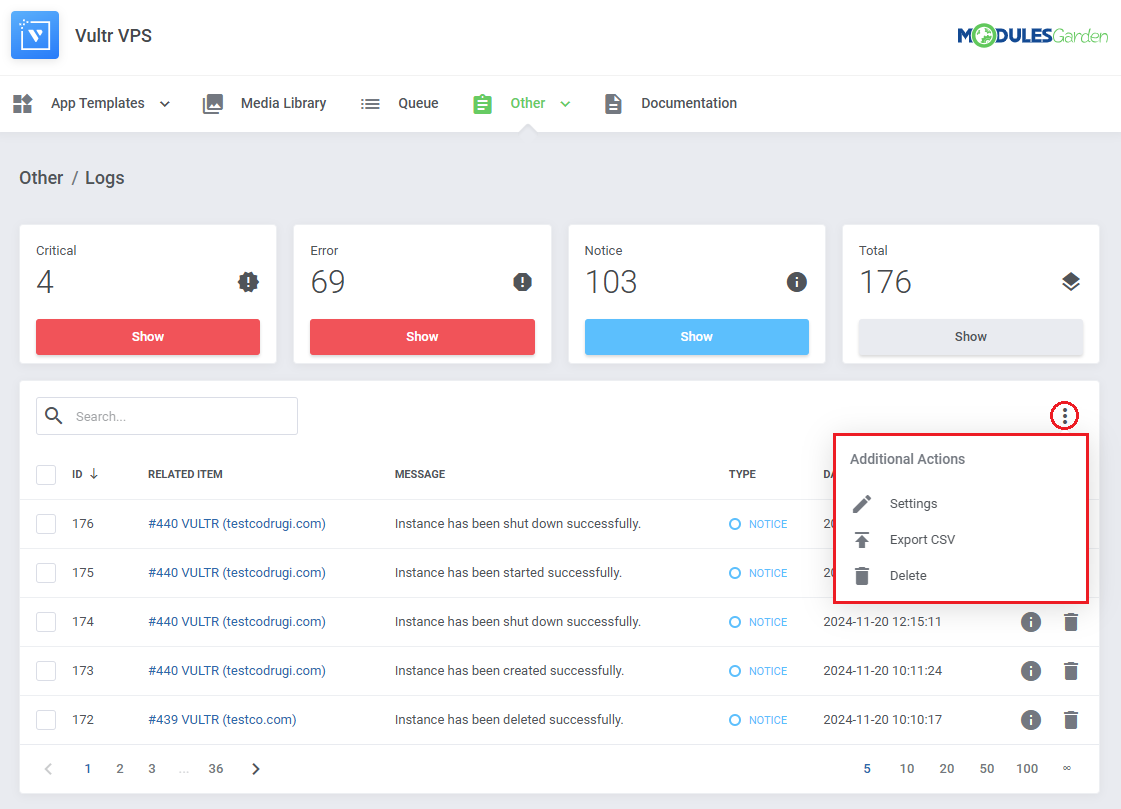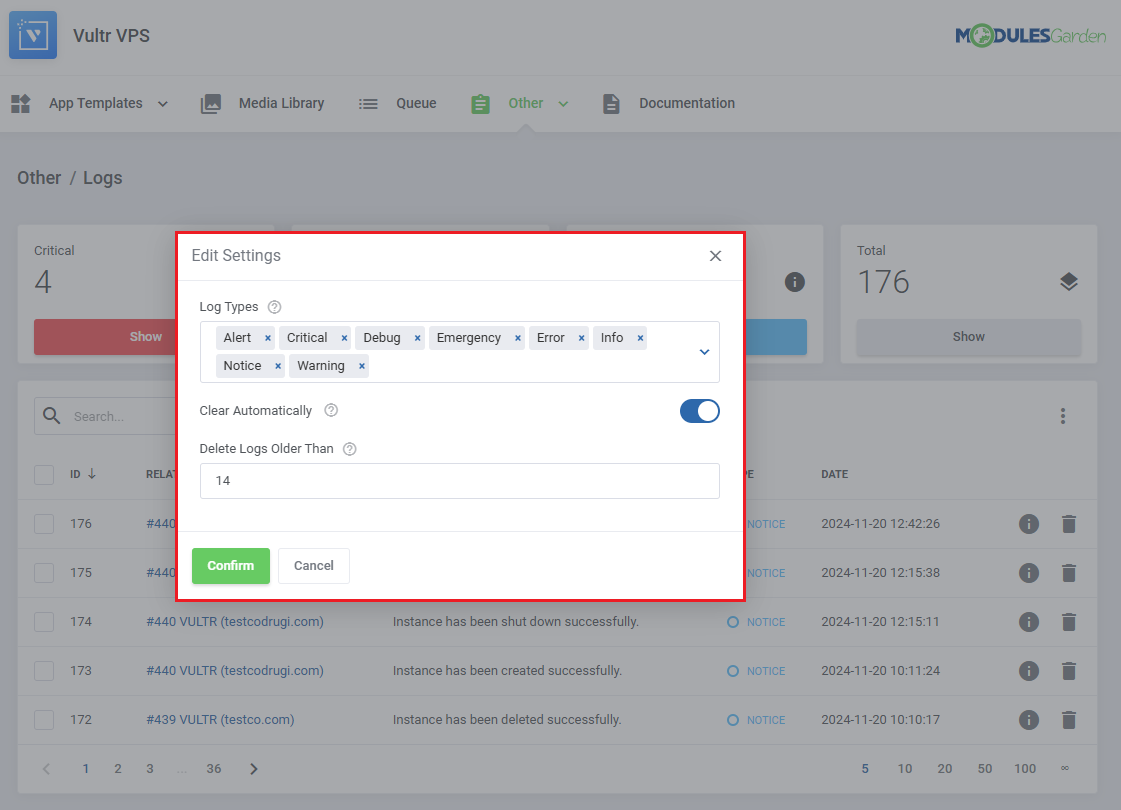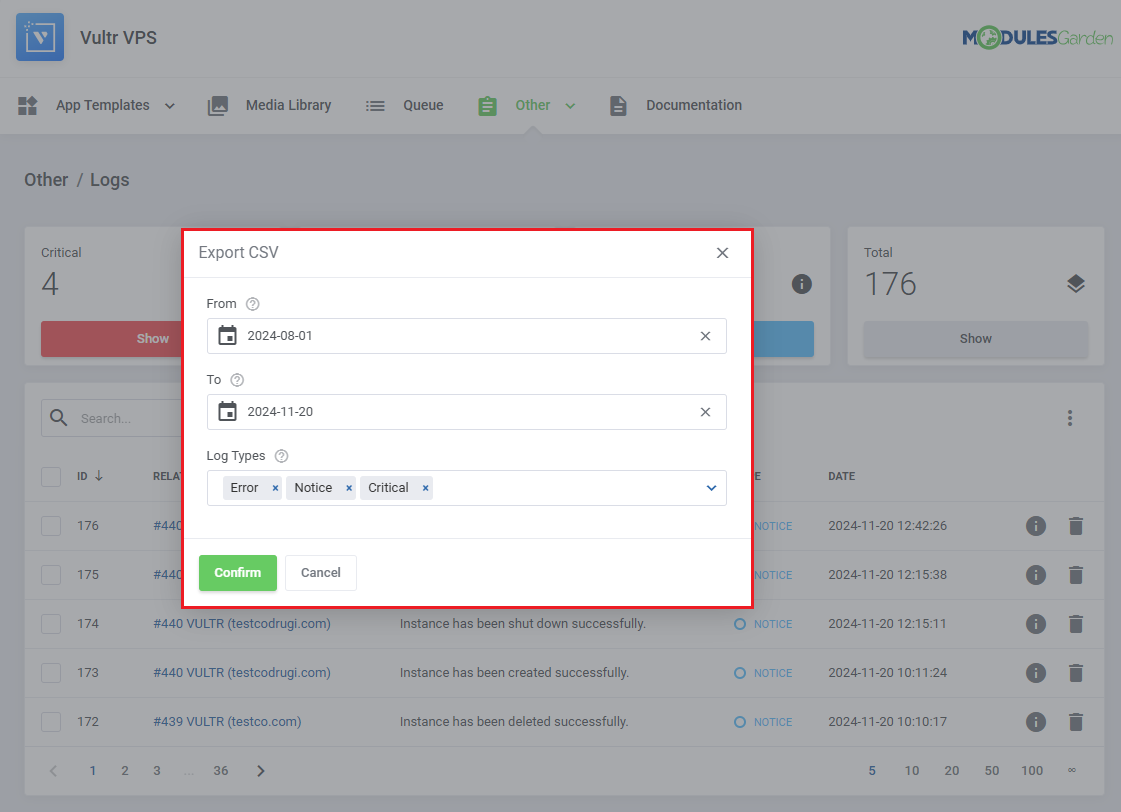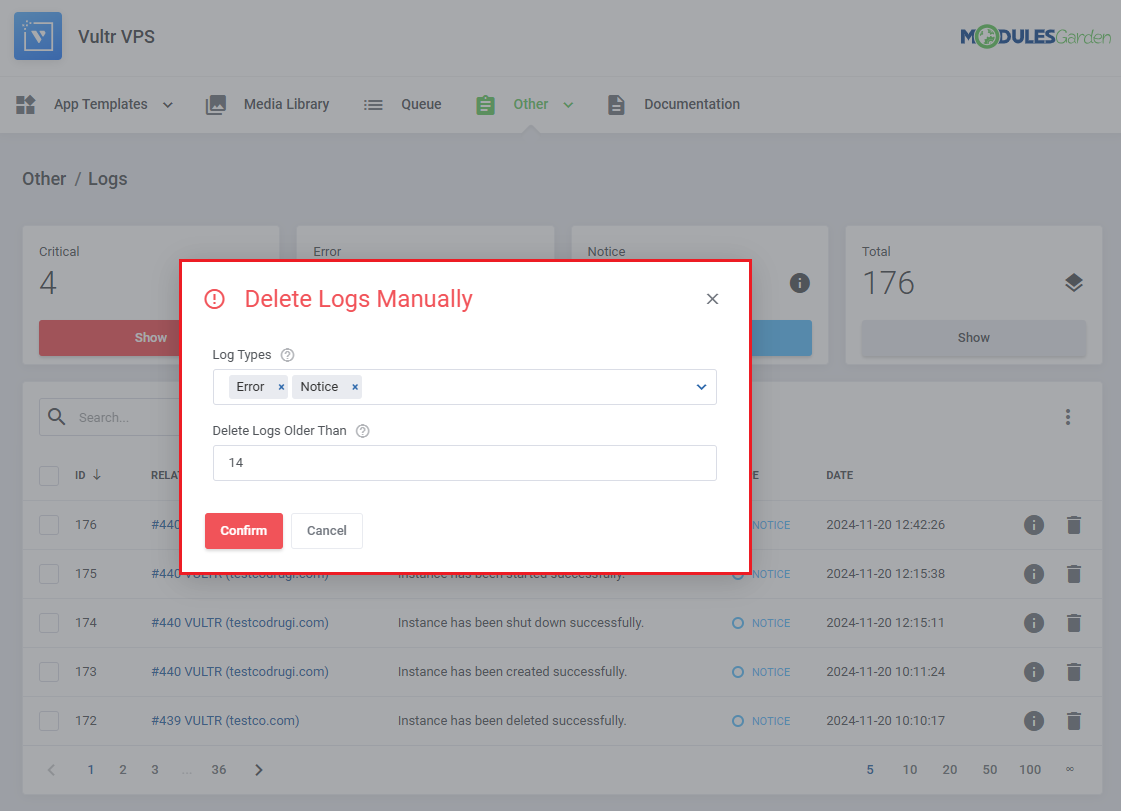|
|
| Line 89: |
Line 89: |
| | |style="padding: 0px 0px 30px 30px;"|✔ Zendesk For WHMCS | | |style="padding: 0px 0px 30px 30px;"|✔ Zendesk For WHMCS |
| | |} | | |} |
| − |
| |
| | '''''Important:''' Some modules do not feature up-to-date versions of the tool, future updates will include the newest version.'' | | '''''Important:''' Some modules do not feature up-to-date versions of the tool, future updates will include the newest version.'' |
| | | | |
Revision as of 10:49, 2 December 2024
About Logs Tool
The Logs tool is an integral feature of ModulesGarden addons, designed to monitor and manage module activity records.
With categorized log types, filters, and detailed views, the review process of module activities is simplified. Administrators can adjust logging settings, export logs, or automate log deletion using configurable rules.
Utilize the rule-based deletion feature or bulk delete option to help keep logs organized and manageable.
|
- Available in Addon Modules:
| ✔ Abandoned Cart For WHMCS
|
| ✔ Advanced Billing For WHMCS
|
| ✔ Cloud Billing For WHMCS
|
| ✔ cPanel Manage2 For WHMCS
|
| ✔ Domain Orders Extended For WHMCS
|
| ✔ Email Notifications Organizer For WHMCS
|
| ✔ Google Analytics For WHMCS
|
| ✔ Hosting Quota Notifications For WHMCS
|
| ✔ Hosting Renewals For WHMCS
|
| ✔ OVHcloud VPS & Dedicated Servers For WHMCS
|
| ✔ Payment Gateway Charges For WHMCS
|
| ✔ Product Cross-Selling For WHMCS
|
| ✔ Product Free Trial Manager For WHMCS
|
| ✔ Product Linker For WHMCS
|
| ✔ Products Reseller For WHMCS
|
| ✔ Quotes Automation For WHMCS
|
| ✔ Recurring Contract Billing For WHMCS
|
| ✔ Report Generator For WHMCS
|
| ✔ WordPress Manager For WHMCS
|
Important: Some modules do not feature up-to-date versions of the tool, future updates will include the newest version.
Management
The Logs can be located in one of two places, depending on the layout of the addon module menu.
It may either appear directly in the main menu or under the "Other" section, grouped with a few additional features. (This placement is typically used when the addon includes a large number of menu entries).
|
Depending on the module, logs can be categorized into several types.
You can filter the module logs by type with the 'Show' buttons:
|
You can see log details by clicking on the 'Details' button.
Some logs might not include details.
|
| Log details might look like this:
|
| You can delete logs either one by one or with the mass delete function.
|
Additional actions include:
- Logging Settings
- Log Export
- Rule Based Deletion
|
In the settings you may decide:
- Log Types - specify which types of logs should be recorded.
- Clear Automatically - choose whether to automatically delete logs older than a defined number of days.
- Delete Logs Older Than - define the number of days after which logs will be automatically deleted.
|
While exporting you will have to specify which logs to export:
- From - define the starting date for logs to export.
- To - define the ending date for logs to export.
- Log Types - select which type of logs to export, this differs between modules.
|
You can also delete specific logs without finding them manually.
Simply define:
- Log Types - specify which log types should be considered for removal.
- Delete Logs Older Than - define the number of days after the log occurrence for automatic deletion.
|
